First I must say that I have acquired the Above picture and film title picture – and now I have posted it here, I am pretty sure that – looking closely at it – the actual shot is from ‘The Last Wagon’ – and that is Richard Widmark in the foreground aiming the rifle
Drum Beat was Written and Directed by Delmer Daves
CAST: Alan Ladd (Johnny Mckay), Audrey Dalton (Nancy Meek), Marisa Pavan (Toby), Robert Keith (Bill Satterwhite), Charles Bronson (Captain Jack)
Not long after Shane (1953), Alan Ladd left Paramount, the studio that made him a star, and launched his independent company, Jaguar Productions.
This was their first film. Here Alan Ladd plays an Indian fighter recruited by President Grant to find a way to peace with the Modoc.
However the tribe wants peace, but a chief named Captain Jack (Charles Bronson) and his band of renegades are causing problems and despite repeated attempts for a peaceful resolution that does not happen, and consequently we get a very exciting end to the film.
My job is to protect the wagon train. When somebody shoots at my people, I shoot back.”
— Alan Ladd
Alan Ladd and Delmer Daves shot Drum Beat in Warnercolor and CinemaScope. As with Cinemascope at that time, they avoided close-ups, went for long takes whenever possible, and gave us lots of gorgeous vistas of Sonora, Arizona, and the Coconino National Forest.
Delmer Daves always showed off the landscape in his Westerns, making each setting an essential element of the film, and none more so than in Drum Beat – my own view is that in this respect ‘The Last Wagon’ made a couple of years later showed the scenery at least as well.
Charles Bronson makes quite an impression as Captain Jack in his first film under his new name (it had been Buchinsky, which was considered too Russian-sounding at the time).
This is a really good film, and a real treat in widescreen
Alan Ladd ABOVE with Audrey Dalton
Alan Ladd and Delmer Daves reunited for The Badlanders (1958), also available from Warner Archive.
Alan Ladd with Marisa Pavan who plays an Indian maiden – also keen on Alan Ladd.
This western is one of Alan Ladd’s best films – he is the peace commissioner turned Indian fighter who finally brings peace in the far west. The film is based on factual events as Modoc boss Captain Jack ignores repeated overtures for peace and leaves the cavalry no choice but to resort to arms to stop the killing and outrages.
Alan Ladd and Charles Bronson, the Indian leader Captain Jack, make fine adversaries and the film has lots of action and beautiful scenery.
A great cast of western favorites are in this film and Alan Ladd even has a moment or two to hold pretty Audrey Dalton in his arms.
Delmer Daves directed this film, which is another in a succession of excellent Delmer Daves Westerns – just think of one of my own favourites just after this ‘The Last Wagon.
Alan Ladd
The Western career of Alan Ladd (1913 – 1964) Alan Ladd was very well known as a Western star, notably of course because of Shane. In fact though, his Western career was relatively limited: he was in 13 Westerns in all.
He had a minor part as a ranch hand (blink and you’ll miss him) in The Light of Western Stars in 1940 and first had a lead part, alongside Robert Preston, in a Western in Whispering Smith in 1948, when he was 35. Then came Branded, not bad, in 1950, and Red Mountain, a Civil War drama, quite a gripper, in 1951. In early 1952 he starred as Jim Bowie in The Iron Mistress before becoming world famous in one of the best-known Westerns of them all, Shane.
After Shane, there was nothing as remarkable. In 1954, Saskatchewan was a Canadian Western, if such a thing exists, and Drum Beat was a kind of remake of Broken Arrow, though not nearly as good.
In the late 50s, we had in 1957 The Big Land, a rather turgid big-budget plodder about Ladd building a frontier town, and his best late Western, Proud Rebel, in 1958, which he made with his son David. There followed a so-so Western heist movie with Ernest Borgnine the same year, The Badlanders, and two late, rather B westerns in 1960, Guns of the Timberland and One Foot in Hell, in which he did not look well at all.
So really Ladd’s Western career lasted little more than a decade from Whispering Smith to The Badlanders, 1948 – 58, with a PS of a couple of B movies at the end of the 50s.
Nevertheless, Ladd was extremely famous: from 1948-1950, in a poll of movie fans organized by the Motion Picture Herald, he ranked number one. He was mobbed by (female) fans at guest appearances on network radio programs such as The Lux Radio Theater and in the 1940s his films grossed almost $55 million, big bucks in those days. His appearances in gangster movies in particular were greatly admired. And as far as Westerns were concerned, Shane put him (rather to his own surprise) right up there with the great cowboy actors.
As Ladd himself would have been the first to admit, he was never really cut out for such roles. Nicknamed ‘Tiny’ in his youth and standing at 5 foot 6 inches, he didn’t have the stature. His good looks were almost feminine rather than rugged and his blond coiffed hairstyle didn’t suit. He looked awkward in Western clothes – they were too obviously costumes. He seemed a gentle man at heart and was fine in Shane romancing Marian, dancing elegantly with the frontier woman and charming her with his good manners, but when it came to fist-fighting in the saloon, he didn’t convince at all.
In Western clothes he looked almost
I have always thought Shane a fine film but fatally flawed by Ladd’s performance. It needed Coop, Peck or Fonda. Someone gutsy yet quietly underplaying. Not that you don’t have sympathy for Alan Ladd. He comes across as a very nice man. Just not right as the lone, tough Western hero.
He was a rather sad person in many ways. Alcohol, depression and insomnia loomed large in his life. His mother was a depressive who had committed suicide by poison. He too may have attempted to kill himself. When he was asked in a 1961 interview, “What would you change about yourself if you could?” he replied brusquely, “Everything.” He died aged only 50 of an acute overdose of “alcohol and three other drugs”.
We’ve already reviewed Shane on this blog and referred to it often (it is a sort of paradigm) and we also discussed The Iron Mistress (only a semi-Western anyway) but in the next few days we’ll look at Ladd’s other Westerns.
Meanwhile, happy trails!
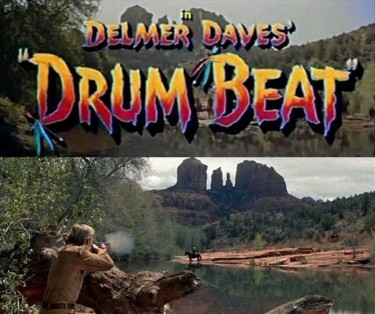
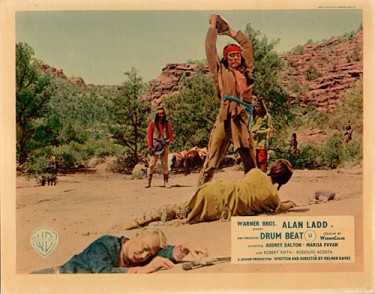
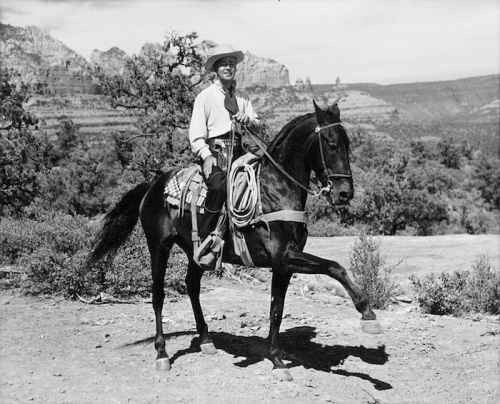
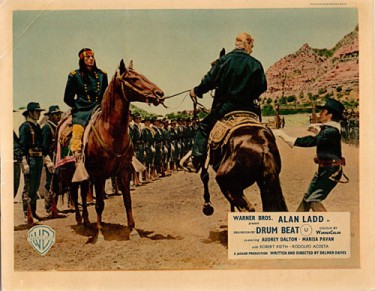
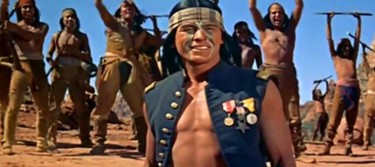
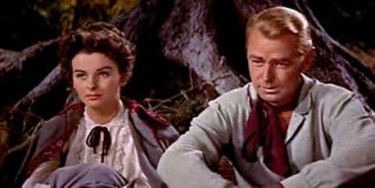
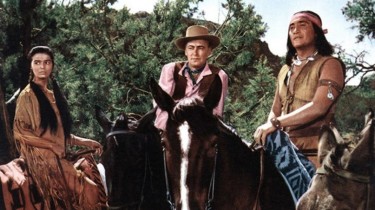
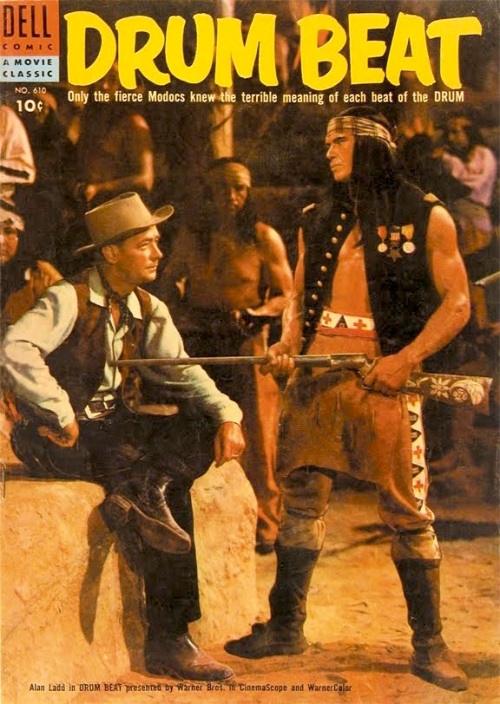
Place your comment